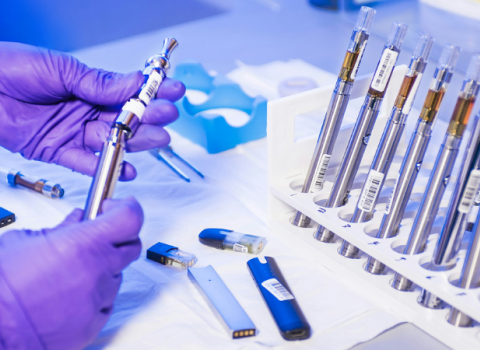A new study shows that universities in the USA still rule the roost when it comes to biotech research, not to mention turning it into cash.
"Despite growing efforts by universities around the world to catch up, the United States remains the global powerhouse in biotechnology research – and in the ability to turn research into commercial applications"
That's the headline story from a new report from the Milken Institute, "an independent economic think tank whose mission is to improve the lives and economic conditions of diverse populations in the U.S. and around the world by helping business and public policy leaders identify and implement innovative ideas for creating broad-based prosperity".
The report looks at how universities go about their tech transfer activities. Sadly, the document, Mind to Market: A Global Analysis of University Biotechnology Transfer and Commercialization, has some of that horrible writing we usually expect of management consultants rather than think tanks.
Many academic researchers, we read "are conflicted by," whatever that means, "the greater focus on commercialization, feeling that it might impede research in areas with a lower probability of direct-market applicability but which could nevertheless lead to advances in fundamental scientific knowledge." Look beyond this, though, and this is a good overview of an important subject, certainly one that is close to the heart of the Science|Business clan.
Fortunately, the report is not just a pat on the back for what they do in the USA. It also looks around the world. Sadly, the comparisons are depressing.
"U.S. universities hold eight of the top 10 positions on a measure of the quality and quantity of published biotech research, which assesses the strength of that research."
Harvard is top dog. Tokyo University comes in at number 2. And at number 3 we find something called the University of London, which many inhabitants of Imperial College, UCL and other London "colleges" see as a notional entity rather than a university where you will find a consistent approach to IPR and tech transfer.
"Nine of the top 10 universities are American when scored on the quality and quantity of biotechnology patents issued in the U.S. (where most universities attempt to patent biotech discoveries)."
This last one is one reason why the report concludes that "U.S. universities are the world leaders in transferring intellectual property to the private sector."
There are some interesting statistics on the universities' investment in their offices of technology transfer (OTT). "For every $1 invested in OTT staff," says the accompanying press release, "the university receives more than $6 in licensing income."
What makes for a good tech transfer model? The study didn't find a single role model. It does highlight some key attributes:
-
incentives (including ownership of innovation by universities, rewards to faculty and a motivating division of revenues among scientists, students, laboratories, departments and universities);
-
funding;
-
well-trained human capital (especially personnel with work experience that has taken them in and out of academia, industry and associations);
-
a culture of leadership, support and commitment from top-level university administrations; and
-
benchmarking and evaluation procedures to learn from one another.
There are certainly messages in there for anyone involved in tech transfer.





 A unique international forum for public research organisations and companies to connect their external engagement with strategic interests around their R&D system.
A unique international forum for public research organisations and companies to connect their external engagement with strategic interests around their R&D system.